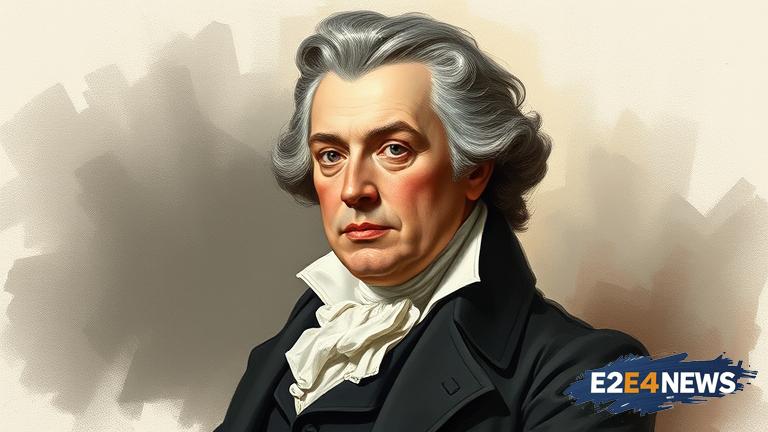Edmund Burke, an 18th-century Irish statesman and philosopher, is widely regarded as one of the founding fathers of modern conservatism. However, his ideas on liberalism have had a lasting impact on the development of political thought. Burke’s concept of liberalism emphasized the importance of tradition, social order, and individual freedom, which are still relevant today. He believed that individuals should be free to pursue their own interests, but also recognized the need for social cohesion and stability. Burke’s critique of the French Revolution, as outlined in his book ‘Reflections on the Revolution in France,’ highlighted the dangers of radical ideology and the importance of gradual, incremental change. His ideas have influenced generations of politicians and thinkers, including liberals and conservatives alike. Despite being a product of his time, Burke’s thoughts on liberalism remain remarkably relevant in today’s political landscape. The rise of populist movements and the erosion of social norms have led to a renewed interest in Burke’s ideas on the importance of tradition and social order. His emphasis on individual freedom and the role of civil society in promoting social cohesion is also highly relevant in the context of modern debates on liberalism. Furthermore, Burke’s critique of radical ideology and his advocacy for gradual, incremental change have important implications for contemporary politics. The current political climate, marked by polarization and division, highlights the need for a more nuanced and balanced approach to politics, one that takes into account the complexities and trade-offs of different policy options. Burke’s ideas on liberalism offer a valuable framework for thinking about these issues and for developing a more thoughtful and reflective approach to politics. In addition, Burke’s thoughts on the role of history and tradition in shaping our understanding of the world are highly relevant in the context of modern debates on identity politics and cultural heritage. His emphasis on the importance of preserving and learning from the past has important implications for contemporary discussions on issues such as immigration, multiculturalism, and national identity. Overall, Edmund Burke’s ideas on liberalism continue to offer valuable insights and perspectives on the challenges and opportunities of modern politics. His legacy serves as a reminder of the importance of nuanced and balanced thinking, and of the need to approach political issues with a deep understanding of history, tradition, and social context. As such, Burke’s ideas remain essential reading for anyone interested in politics, philosophy, or history. The ongoing relevance of Burke’s ideas is a testament to the enduring power of his thought, and highlights the importance of continued engagement with his work. In conclusion, Edmund Burke’s ideas on liberalism offer a rich and nuanced framework for thinking about modern politics, one that emphasizes the importance of tradition, social order, and individual freedom. His legacy continues to shape contemporary debates on politics, philosophy, and history, and his thoughts remain essential reading for anyone interested in these fields. The current political climate, marked by polarization and division, highlights the need for a more thoughtful and reflective approach to politics, one that takes into account the complexities and trade-offs of different policy options. Burke’s ideas on liberalism offer a valuable framework for thinking about these issues, and for developing a more nuanced and balanced approach to politics. By engaging with Burke’s ideas, we can gain a deeper understanding of the challenges and opportunities of modern politics, and develop a more thoughtful and reflective approach to addressing these issues.
